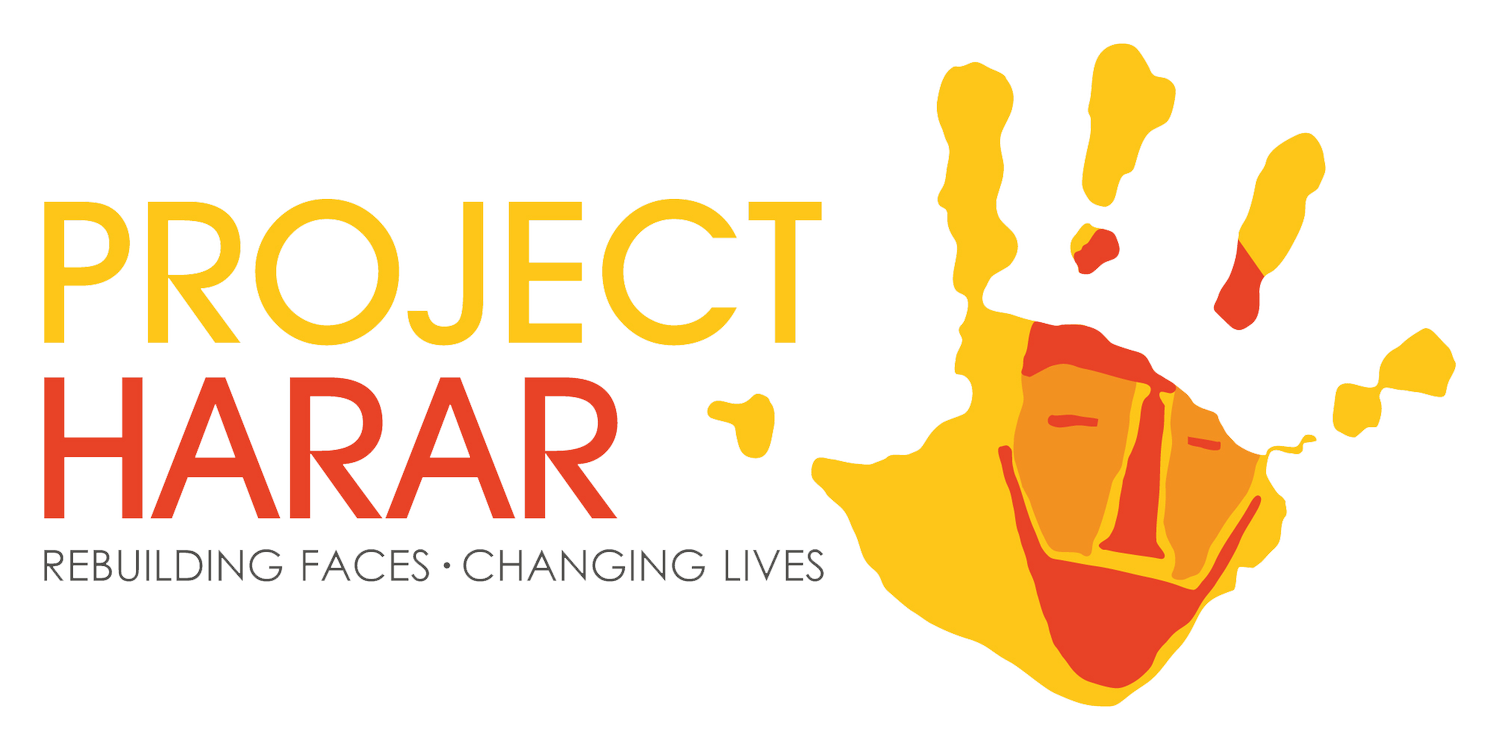In March 2022 Nyalam was finally able to reach cleft treatment for both her children
(All names have been changed in this story)
Both of Nyalam’s children were born with cleft lips. In March 2022 she was finally able to reach treatment for her children with support from Project Harar.
Nyalam, her four year old son is Garang and six year old daughter Ayen, are from South Sudan, but the devastating impact of civil conflict in their country forced them to flee to Ethiopia. They live in the largest of seven refugee camps in the Gambella region of Ethiopia. Garang and Ayen where identified by an outreach worker called Mr Bham, who was able to contact Project Harar so that they could be included in one of Project Harar’s cleft programmes – along with other children in the camp identified with cleft conditions. Garang and Ayen’s father works for an humanitarian organisation.
Ayen and Garang with other families from the Nguenyyiel refugee camp, March 2022
Nyalam told us that the journey from the hospital from the camp was a little challenging, as her children became travel sick, they had not traveled such a long distance by a car before. She said that when Ayen was born she was scared, as she was her first born and she had never seen a cleft lip before. When Garang was born she was still worried, but was more aware of the challenges that were to come — such as with breast feeding. Nyalam said that both Garang and Ayen have difficulties speaking, other children can tease them because they are different, but still she is happy that they have each other to play and spend time with, they are not alone.
Ayen and Garang are currently attending school in the camp, Garang is in preschool and said when he grows up he wants to be a doctor. Ayen is in grade one and in the future she wants to be an engineer, building houses for her community.
Now that Garang and Ayen have received treatment for their cleft conditions, their dreams to help their community will be a little more solid. They will be less likely to drop out of education due to stigma and included with other children. A corrected cleft condition will means the children will be able to effectively eat and drink — incredibly important in an insecure food environment.
Ayen before her cleft surgery, March 2022




